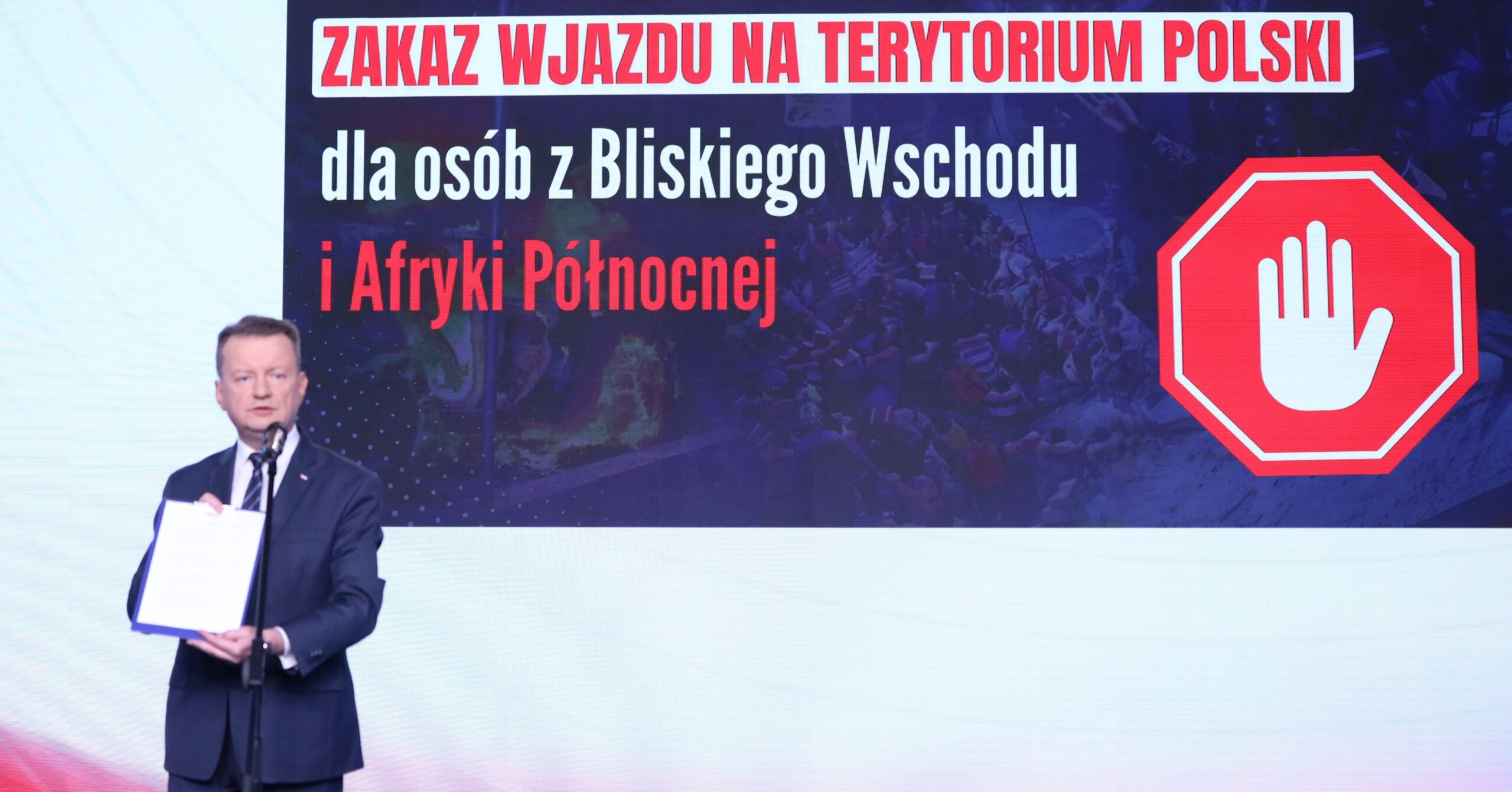- 46 Posts
- 8 Comments

 2·1 month ago
2·1 month agoHungarian Prime Minister Viktor Orbán has announced his support for conservative opposition Polish presidential candidate Karol Nawrocki ahead of Sunday’s run-off election, in which Nawrocki is competing against government-aligned centrist Rafał Trzaskowski.
His endorsement comes two days after Donald Trump’s homeland security secretary, Kristi Noem, also called on Poles to vote for Nawrocki and described Trzaskowski as “an absolute train wreck of a leader”.
Noem’s declaration of support came during CPAC Poland, the first time that the prominent US conservative conference has been held in the country. Orbán’s remarks came today at the Hungarian offshoot of CPAC.
“On Sunday, presidential elections will be held in Poland,” said Orbán, quoted by Polsat News. “Long live Nawrocki!”
The Hungarian leader then pointed to Mateusz Morawiecki, Poland’s former conservative prime minister, and said: “If you want to know what true liberal democracy looks like, ask him. Unheard-of things are happening in Poland. All European rules and principles are being trampled. And Brussels supports it.”
Morawiecki and his national-conservative Law and Justice (PiS) party have accused Poland’s current government, led by former European Council President Donald Tusk, of violating democracy and the rule of law.
Elsewhere in his speech, Orbán announced a “patriotic plan” to “transform” the European Union. “We want to take Europe back from migrants. We want a Christian culture, schools based on national principles,” he declared.
Orbán’s Fidesz party has long been closely aligned with PiS, which ruled Poland from 2015 to 2023 but is now in opposition. Though Nawrocki is technically an independent, PiS is supporting his presidential bid.
PiS’s relationship with Orbán has, however, faced some criticism in Poland, in particular due to the Hungarian leader’s close relationship with Russia’s Vladimir Putin. That led relations between PiS and Fidesz to cool after the invasion of Ukraine in 2022, though they have subsequently warmed again.
After Orbán’s endorsement of Nawrocki today, a number of figures from Poland’s ruling coalition, which contains pro-EU parties ranging from left to centre-right, posted pictures on social media of Orbán and Putin together.
“Congratulations on the support from Prime Minister Viktor Orban,” foreign minister Radosław Sikorski wrote to Nawrocki, before asking: “Will you pursue a similar policy towards Putin and the European Union?”
Last week, Ukraine’s ambassador to Poland accused Nawrocki of “playing into Russia’s hands” by declaring his opposition to Ukrainian membership of NATO.
Nawrocki has also called for measures to ensure that Poles receive preferential access to public services ahead of immigrants, the majority of whom are Ukrainians.
Polls suggest that Sunday’s presidential election run-off will be an extremely tight race between Trzaskowski and Nawrocki. The winner will succeed current President Duda when his second and final five-year term in office ends in August.

 1·1 month ago
1·1 month agoPoland’s prime minister, Donald Tusk, has promised a “zero tolerance, ruthless” approach to hooliganism at tonight’s UEFA Conference League football final between Chelsea and Real Betis in the Polish city of Wrocław, following clashes between British and Spanish fans.
Yesterday evening, at around 7:30 p.m., groups of rival fans began throwing chairs and bottles at one another outside bars on one of Wrocław’s historic market squares.
“The English fans didn’t like the fact that the Spanish fans were sitting in an Irish pub, which means they sympathise with the Irish,” Tomasz Sikora, a spokesman for Wrocław city hall, told Polsat News. “That’s where the whole issue came from.”
“The police reacted immediately, which prevented further escalation of the conflict,” added Łukasz Dutkowiak, a spokesman for the local police. “The fans scattered in different directions and activities aimed at identifying them are still ongoing.”
Another clash then broke out around 11 p.m. involving around ten people. “A 31-year-old Spanish citizen, who was the most aggressive [among them], was detained,” while other participants ran away, said Dutkowiak, quoted by broadcaster TVN.
Separately, three other people from Spain were arrested for dismantling Conference League final flags. Sikora said that, in total, police made 515 interventions on Tuesday, the kind of level normally seen on New Year’s Eve.
Monika Kaleta, a spokeswoman for local police, told Eurosport that they are “expecting a possible escalation of clashes” today around the final, which begins at 9 p.m. local time in Wrocław’s 43,000-capacity Tarczyński Arena.
Around 2,000 police officers have been deployed to the city for the final, including many drafted in from other parts of Poland. Local newspaper Gazeta Wrocławska, however, notes that most of the thousands of fans who have come to Wrocław for the match are behaving peacefully.
In a statement issued on social media on Wednesday afternoon, Tusk “thanked the police for their decisive actions against the hooligans in Chelsea and Betis shirts in Wrocław”.
“Zero tolerance for violence on our streets!” he added. “We warn you: if necessary, the police will be even more ruthless today!”

 1·5 months ago
1·5 months agoPoland’s border guard has joined police in raids around the country targeting illegal immigration. As a result of the action, almost 400 proceedings have been launched to deport foreigners without the right to be in Poland.
The crackdown came days after a declaration last week by Poland’s interior minister and the mayor of Warsaw of a “zero tolerance” approach to crimes committed by immigrants, following media reports of a growing wave of “imported crime”.
The raids – which took place on 13-14 February but which were only announced this week – were part of a broader, nationwide police action targeting people wanted on arrest warrants. Over 26,000 police officers carried out checks at over 32,000 locations.
As a result, 1,474 people were detained, including 204 foreigners, announced the national police headquarters on Wednesday this week. That in turn led to the police in 166 cases applying to the border guard to expel foreigners from Poland.
In a separate statement, the border guard revealed that 1,000 of its officers had participated in the raids, with the “aim of combating illegal migration”. They carried out over 2,400 checks on the legality of the presence of foreigners in Poland, leading to the launching of proceedings against almost 400 of them.
Among those whose documents were checked, the largest number, over 1,000, were Ukrainians, who are by far Poland’s largest immigrant group. The next largest numbers were Georgians (264), another large immigrant group, and Colombians (204), whose numbers have been growing rapidly in recent years.
Among those against whom deportation proceedings were launched, Ukrainians account for 180 cases and Georgians and Colombians almost 60 each, said the border guard.
Most deportation cases were brought due to the finding that the foreigners were not staying legally in Poland, but in three instances they were initiated due to a threat to state security or public safety.
“This action is the beginning of regular activity by the [uniformed] services, the primary goal of which is to ensure the security in our country,” wrote the police. “It is also a signal to those who want to come to Poland to conduct criminal activities: they will be under the watchful eye of the Polish services.”
The outcome of the raids was also hailed by interior minister Tomasz Siemoniak, who wrote on social media that they show “we will not allow foreign gangs to enter Poland”.
Earlier this month, Siemoniak noted that 5% of all people suspected of carrying out crimes in Poland last year were foreigners. However, the data he presented also indicated that immigrants make up 8% of Poland’s population.
In recent years, Poland has experienced a wave of immigration that is unprecedented in its history and among the highest of any country in Europe. It has issued more first residence permits to immigrants from outside the EU than has any other member state. Meanwhile, asylum applications rose to a new high in 2024.
Earlier this month, Rzeczpospolita, a leading newspaper, reported that Georgian immigrants, in particular, have been responsible for a return to the kind of violent organised crime that was common in the 1990s during the post-communist transition.
Last year, Poland’s government approved a tough new migration strategy aimed at “taking back control” of the country’s borders. It includes a proposal to suspend the right of those who have entered the country irregularly to claim asylum.

 2·5 months ago
2·5 months agoPoland’s parliament has approved a bill allowing the government to suspend the right to claim asylum for people who cross the border irregularly as part of the “instrumentalisation of migration” by a foreign state.
The measure has been criticised as a violation of European and international law by the United Nations High Commissioner for Refugees. But it received overwhelming support from Polish MPs in both the ruling coalition and the opposition.
The 386 votes in favour in the 460-seat Sejm, the more powerful lower house of parliament, included all or the vast majority of MPs from the centrist Civic Coalition (KO), centre-right Polish People’s Party (PSL) and centrist Poland 2050 (Polska 2050), which are part of the ruling coalition.
They were joined by all or most MPs from the two main right-wing opposition parties: the national-conservative Law and Justice (PiS) and the far-right Confederation (Konfederacja).
Only 38 MPs voted against it, mainly from The Left (Lewica), which is part of the ruling coalition, and Together (Razem), a small left-wing party.
The bill now passes to the upper-house Senate, which can delay but not block legislation, then on to President Duda, a PiS ally, who can sign it into law, veto it, or pass it to the constitutional court.
Poland received a record number of asylum claims last year amid a renewed crisis at the Belarus border, where since 2021 tens of thousands of migrants and asylum seekers – mainly from the Middle East, Asia and Africa – have been trying to cross with the help and encouragement of the Belarusian authorities.
In response, Prime Minister Donald Tusk proposed in September a tough new migration strategy, including allowing the temporary and partial suspension of the right to claim asylum. Those measures were subsequently approved by his government in December.
The bill approved by the Sejm this evening would enact parts of Tusk’s strategy by amending the asylum law to introduce a new term into Poland’s legal lexicon: “instrumentalisation of migration.”
That is a phrase regularly used by Polish and other European authorities to describe the deliberate manner in which Belarus and Russia have used migrants and asylum seekers in an attempt to destabilise EU countries.
Under the Polish bill, the interior ministry would be empowered to temporarily restrict the right to claim international protection if instrumentalisation of migration is taking place, if it “constitutes a serious and real threat to security”, and if the restriction of asylum rights is necessary to counter the threat.
The legislation also specifies that the government’s actions must “aim to limit the rights of foreigners intending to apply for international protection to the least possible extent”, reports news and analysis website OKO.press.
Moreover, certain categories of people must be allowed to claim asylum even if the measures are in place, including minors, pregnant women, people who require special healthcare, people deemed at “real risk of harm” if returned over the border, and citizens of the country that is carrying out the instrumentalisation.
An amendment accepted today by parliament before the bill was passed allows an entire group that includes minors – such as a family – to submit an asylum claim. Previously, only the minors would have been allowed to.
The interior ministry’s regulation implementing the suspension of asylum rights must define the area in which it will apply and how long it will apply for (up to 60 days, after which it can only be renewed with the approval of the Sejm).
Tusk has argued that the measures are necessary because existing asylum rules were not designed to accommodate the deliberate instrumentalisation of migration by hostile states.
However, human rights groups have declared the measures to violate not only international law but Poland’s own constitution. They also say it will cause real harm to vulnerable asylum seekers, who will face being pushed back over the border into Belarus.
Well over 100 people are believed to have died around the borders between Belarus and EU member states since the beginning of the crisis in 2021.

 1·5 months ago
1·5 months agoA Ukrainian man has been sentenced to eight years in prison by a Polish court for preparing to carry out acts of sabotage on behalf of Russia.
The 51-year-old, who can only be identified as Serhiy S. under Polish privacy law, was detained by Poland’s Internal Security Agency (ABW) in January 2024 on suspicion of working for the Russian security services.
He was accused of planning arson attacks on various buildings in Wrocław, Poland’s third-largest city, including a paint factory in close proximity to a fuel warehouse belonging to state oil giant Orlen.
In a ruling today – which can still be appealed – Serhiy S. was convicted of participating in an international organised criminal group and planning sabotage activities in Poland on behalf of foreign intelligence services.
Among the evidence against him were camera recordings and mobile phone records that showed him in close proximity to the paint plant, reports the Polish Press Agency (PAP).
The suspect himself – who fled Ukraine after Russia’s invasion and had previously stayed in Germany – had acknowledged accepting an order received online to set fire to the building. But he claimed he had no intention to actually do it, instead aiming to defraud money from the person offering it.
The judge, Marcin Myczkowski, rejected Serhiy S.’s not-guilty plea, however. In handing down the sentence, Myczkowski noted that, since the Russian invasion of Ukraine in 2022, Poland and other European countries have faced a wave of actions aimed at destabilising them, including acts of sabotage.
“The idea was to convince the public that it was not worth supporting Ukraine, to create the impression that the authorities of Western countries were not coping,” said Myczkowski, quoted by the Gazeta Wyborcza daily.
Serhiy S. was among those who had been “instructed and directed” to carry out such actions, said the judge. He expressed hope that the eight-year prison sentence would “signal to the accused and people like him that it is not worth it and that the Polish state is acting”.
Both Myczkowski and one of the prosecutors in the case, Marcin Kucharski, noted that Serhiy S. is an example of a new kind of agent used by foreign services.
“Instead of expensive, highly qualified agents trained for a long time, we are dealing with people who are ready to do anything for four thousand dollars,” said Kucharski, quoted by PAP.
Since Russia’s full-scale invasion of Ukraine, Poland has arrested a number of people accused of spying for or carrying out sabotage on behalf of Russia and Belarus. It has also accused Moscow and Minsk of orchestrating a migration crisis on Poland’s border and of carrying out cyberattacks.
In December 2023, 14 members of a Russian spy network who planned to derail a Ukraine aid train were sentenced in Poland to between one and six years in prison.
Poland has also suggested that it is likely Russia was behind a wave of sabotage cases last year, including a fire that destroyed Warsaw’s largest shopping centre. In October, four people were detained in Poland on suspicion of involvement in sending hidden incendiaries via parcel delivery services.
Last week, two Russian men were sentenced to five and a half years in prison for place restriction posters for Russia’s mercenary Wagner Group in Polish cities.

 13·5 months ago
13·5 months agoAside from that gaffe he does have a good history of being a diplomat though.

 6·1 year ago
6·1 year agoTitle changed due to no mention of “almost 600 people” being targetted in other media articles on the affair.

















Polish media outlets supportive of Poland’s national-conservative opposition Law and Justice (PiS) party have published a recording of a private phone call involving Prime Minister Donald Tusk when he was president of the European Council.
They say it shows how he was continuing to interfere in Polish politics – and speaking in a dismissive and vulgar way about certain parts of Poland – while holding his supposedly neutral EU position.
But commentators and legal experts, as well as figures from Poland’s current ruling camp, say that the conversation reveals nothing of interest and that the real issue is how it was recorded and came to light. They believe it was produced as part of illegal surveillance conducted under PiS using Pegasus spyware.
On Friday and Saturday, right-wing broadcasters wPolsce24 and Republika released audio from two phone conversations involving Roman Giertych, who is currently an MP elected on the list of Tusk’s centrist Civic Coalition (KO). One was with Paweł Graś, Tusk’s current chief of staff, and the other with Tusk himself.
Though the recordings are undated, their content makes clear that they were made in the lead-up to the October 2019 Polish parliamentary elections, when KO was in opposition and Tusk was head of the European Council.
During the majority of his conversation with Tusk, which lasts around 16 minutes, Giertych – who at the time worked as a lawyer, including for Tusk and his children – was complaining about the then-leader of KO, Grzegorz Schetyna.
Giertych expressed frustration that Schetyna was blocking his attempts to become an election candidate for KO, saying that Schetyna was trying to suggest that Giertych stand in districts where he would have little chance of winning.
Here, Giertych described the places being suggested by Schetyna (eastern Wielkopolska province and the city of Radom) as “shits” (using the English word), at which point Tusk expressed agreement that they were places “where the fuck-ups are” (“gdzie zjeby są”).
When publishing the material, Republika noted that, at the time, “Tusk was the president of the European Council and, according to EU law, he should not interfere in domestic political disputes. And yet the tapes show something completely different”.
In response to the release of the recordings, Giertych issued a statement in which he said that they were made “as part of an illegal operation conducted against me by the CBA [Central Anticorruption Bureau]” using Pegasus spyware purchased by the PiS government.
PiS has been accused of illegally buying Pegasus and then using it to spy on opponents of its government, including Giertych and Krzysztof Brejza, who was the head of KO’s election campaign in 2019. Extracts of recordings made using Pegasus were then leaked to PiS-friendly media.
“Recording conversations between a lawyer and his clients, not destroying them, taking copies of the conversations from the CBA, passing them on to the media and publishing these conversations are very serious crimes,” wrote Giertych. “Those guilty of all these crimes will be punished.”
Legally, the CBA is supposed to destroy surveillance recordings that do not contain evidence of any crime. Giertych has not been charged with any crime in relation to the content of the recordings.
Przemysław Rosati, the president of Poland’s Supreme Bar Council, says that the newly released recordings “confirm that Pegasus was used for surveillance without a legal basis and unrelated to state security”.
“Monitoring a lawyer’s telephone is an action that directly violates attorney-client privilege and…is simply an abuse of power,” he added.
Foreign minister Radosław Sikorski also commented on social media, writing that he “hopes the media will not get excited about tidbits [contained in the recordings] but will help identify the criminals who recorded and distributed conversations between a lawyer and client”.
Tusk himself has not yet commented on the recordings.
Since replacing PiS in power in December 2023, Tusk’s ruling coalition has launched a number of investigations into the use of Pegasus by the former government.
Last year, prosecutor general Adam Bodnar revealed that almost 600 people in Poland were targeted for surveillance with Pegasus between 2017 and 2022. The interior minister, Tomasz Siemoniak, said that this had included “too many cases” when it was used “against inconvenient politicians, lawyers, judges and prosecutors”.
Subsequently, a former PiS deputy justice minister, Michał Woś was charged with abusing his powers for the alleged illegal transfer of justice ministry funds to finance the purchase of Pegasus in 2017. He denies the allegations.
In February this year, the head of the CBA, Agnieszka Kwiatkowska-Gurdak, resigned from her position after refusing to answer questions during an appearance before a parliamentary commission investigating the use of Pegasus spyware.